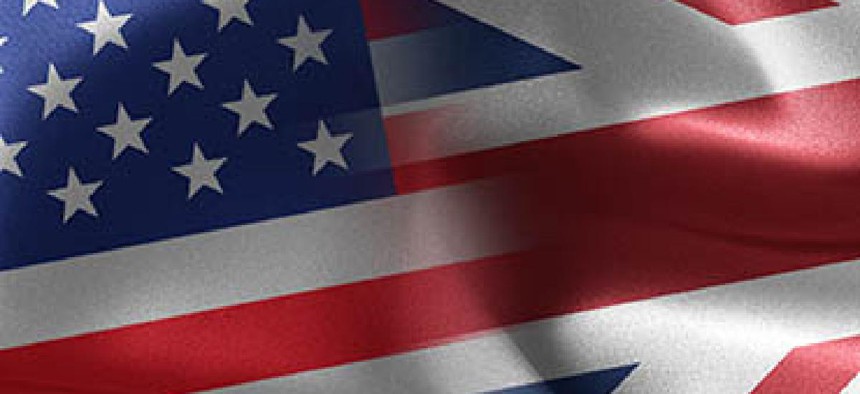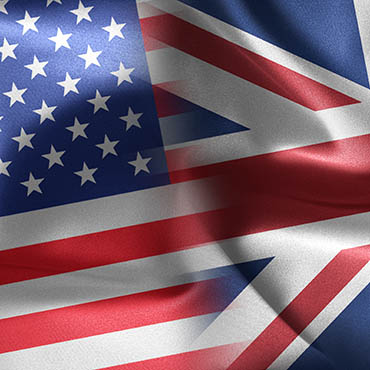Britain's cyber envoy, in his own words

The Anglo-American relationship in cyberspace is flourishing thanks in part to bilateral measures agreed to by Prime Minister David Cameron and President Barack Obama.

(Image: Ruskpp / Shutterstock)
The recent parliamentary elections in the United Kingdom came with concerned headlines that Britain might retreat from its sizable role on the global stage. But that hardly looks likely when it comes to cybersecurity.
Prime Minister David Cameron’s office recently named a “cyber envoy” to the United States, former British and American intelligence officials are plying their trade together in the private sector, and the countries’ top universities are linking up in R&D. Regardless of where it goes in other fields, the “special relationship” looks set to grow closer still in cyberspace.
“On cyber, the relationship is incredibly strong, as you’d expect – because of the [shared] heritage but also because of the scale of the threat,” Andy Williams, the new British cyber envoy to the United States, said in an exclusive interview.
The Welshman helped organize the British delegation of tech firms that joined Cameron on his visit to Washington, D.C., in January. The two governments agreed to several measures, including the establishment of a “joint cyber cell” in each country where the agencies can share data and delve deeper into cyber defense. Two months after that fruitful trip, Williams began his work as Britain’s first-ever cyber envoy to Washington.
Williams has gone about his first several weeks on the job padding his rolodex with contacts from U.S. federal agencies that might be interested in British IT products and services. That he was appointed by No. 10 Downing Street is “a door-opener in its own right” with potential U.S. business partners, Williams said.
There is a cultural and security gap that British firms interested in the American defense market have to navigate, according to Ian Wallace, a former senior official in the British Ministry of Defense. While the U.S. government has plenty of demand for IT security, “it’s quite a tough market for non-American firms, partly for security reasons and partly for … cultural reasons,” said Wallace, who is now a senior fellow at New America, a liberal think tank. Here, Williams wants to play matchmaker.
“Part of what I’m here to work out for the UK companies is where they should focus their attention in terms of what [the U.S.] government is looking for but also what we have that makes sense” to offer American buyers, he said. Williams will try to link the legions of U.S. bureaucrats with cybersecurity in their portfolio with British startups, for example, that might not know where to begin in hawking their services in the Beltway.
There are several British firms interested in participating in the massive continuous diagnostics and mitigation acquisition vehicle run by the Department of Homeland Security, according to Williams. But those firms won’t be able to pitch directly to be prime contractors in that vehicle, he added, instead suggesting the firms might seek to become subprimes.
Help not always needed
Britons like Andy France don’t need help cracking the U.S. federal cybersecurity market. France is the former deputy director for cyber defense operations at GCHQ, the UK government’s signals intelligence agency, who sits on the advisory board of Darktrace, a cybersecurity firm staffed with former British and American intelligence officials.
France’s move to the private sector caught the eye of Jim Penrose, who was then a senior official at the National Security Agency and had done inter-government work with France. Buoyed by a belief in the type of network defense being built by former intelligence officials at Darktrace, Penrose left the NSA to join the firm last August. Some eight months later, Penrose found himself at the world’s largest IT security conference in San Francisco, presenting Darktrace’s capabilities to potential clients.
Williams was on hand for the conference, too, breaking into his new role as cyber envoy by bringing a British delegation of government officials and companies to Stanford University.
Williams said there was plenty of cyber-related learning to flow in both directions across the Atlantic. “We’re pretty good at producing scientists and innovators,” he said. “We’re not as good at commercializing the capability, and that’s where we can learn from the U.S.”


